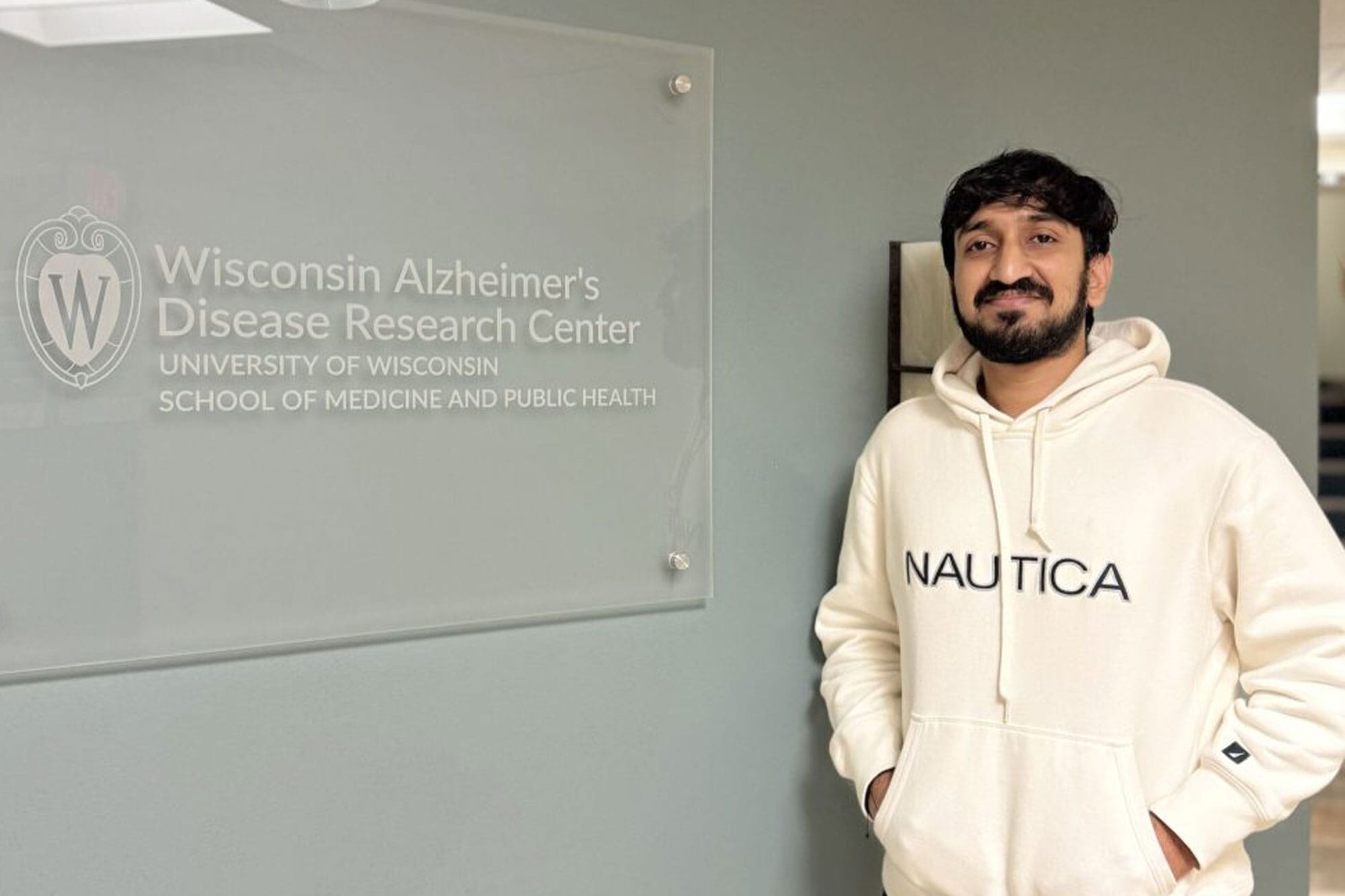
MS Information student Rahil Virani contributes to UW–Madison Alzheimer’s research
Data skills can open unexpected doors. Rahil Virani, MSx’25, knows this firsthand.
Before coming to Madison, Virani was a software developer tackling coding projects while living in Mumbai, India, a city of 20 million residents. In his role as a software developer for ITdeation Technologies, he began to develop a keen interest in data and its central role in computing, while at the same time growing weary of what he called “the big city vibe.”
When Virani began to search for graduate programs in data analytics, he considered quality, affordability and location, and UW–Madison stood out to him on all three criteria.
“UW–Madison was highly ranked and affordable, and I had heard that it’s also a beautiful and peaceful place to live,” Virani said. After considering various programs to further his data-centric education, the MS in Information — with its data analytics concentration — seemed to Virani like “a perfect fit.”
The Master of Science in Information program equips students with the technical skills necessary to comprehend today’s information and data systems, as well as the critical thinking, design and communication skills to govern and critique them. Students may enroll in either an in-person or online version of the program, both of which offer optional concentration areas in data analytics/data management, user experience design and human factors in cybersecurity.
During his fall 2023 semester, Virani secured a role as a Research Data Coordinator with the Wisconsin Alzheimer’s Disease Research Center (ADRC) at the School of Medicine and Public Health (SMPH). He now applies his data-savviness to impactful research that aims to combat a disease currently afflicting nearly 7 million Americans over age 65, including more than 120,000 Wisconsinites.
Through the MS program, Virani is not only expanding his data analysis skill set; he is getting hands-on experience with ADRC, managing the databases underlying one of the largest medical research collaborations in the United States.
Securing the role
At the beginning of the fall semester, Virani told Brendan Casey, iSchool director of experiential learning, about his interest in gaining hands-on experience while completing his coursework. Casey connected with Michael Collins, the Senior Director of Research Computing at SMPH, who had expressed interest in hiring iSchool students to help manage ADRC databases.
“They wanted someone who understands data, who can identify errors or gaps in the data,” Virani said. “I felt like after two interviews, it just clicked.” Additionally, Virani’s software engineering experience was a plus, as many of the data management tasks at ADRC require proficiency with coding languages like Python and R.
Virani also noted that a class he took in fall 2023, LIS 875: Information Processing and Retrieval, was instrumental in helping him gain a deeper understanding of what he called “strategic programming,” an approach he defined as “the application of programming skills in a thoughtful and purposeful manner, including considerations of data analytics, design, and the user experience.”
Virani’s role, first and foremost, is to “clean” this crucial data. That means using code to find potential errors made by a team of student volunteers, who assist researchers in identifying candidates for early-onset Alzheimer’s. With such a large group of subjects, the data inevitably gets a bit messy, so Virani’s goal is to make sure the information in both databases (CoRRIE and REDCap) are consistent with one another. This data cleaning lays the essential foundation for analysis and future insights.
The ADRC data allow scientists to reveal new discoveries about Alzheimer’s disease and ultimately unlock benefits for public health. Virani and his team are the stewards of data that may hold the key to detecting Alzheimer’s early, preventing it, or stopping it in its tracks.
For more information on this and other professional degrees, explore UW–Madison Professional Degrees and Certificates online, connect with an enrollment coach or attend an informational webinar.
This article was adapted from a version in the Spring 2024 issue of Jottings, a newsletter of The Information School in the UW–Madison School of Computer, Data & Information Sciences.
Published on May 06 2025
Last Updated on May 30 2025
Categories: Professional Degrees & Certificates, Student stories



